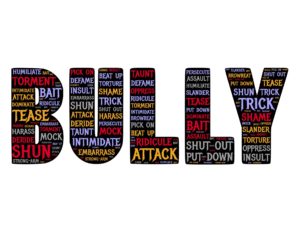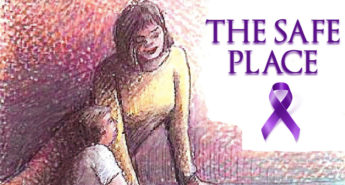 What is Bullying?
What is Bullying?
Bullies want power and control over someone weaker or smaller by what they say or what they do repeatedly or perceived that it could be repeatedly.
Does Bullying Affect Me?
Who wants to think about their child being bullied at school? No one does. Yet, according to bullying-statistics.org one in four kids in the U.S. are bullied on a regular basis. Even more, there are about 160,000 children that miss school every day out of fear of being bullied.
Is Bullying Hurting my Child?
Parents across the country who have lost their children to suicide as a result of bullying tell us that they wish they would have known about the warning signs that their child was being bullied. In this bullying quiz, ask yourself if your child shows these significant signs of being bullied.
- Does your child return home regularly with new injuries that don’t have solid explanations or that always originate from the same child or group of children?
- Does your child regularly have missing or “borrowed” items?
- Has your child shown a significant change in behavior to being withdrawn, sad, depressed or often angry?
- Does your child have sudden fears of being in certain places or school?
- Is your child suddenly complaining of being sick often, with the appearance of trying to avoid going somewhere?
According to the results of the quiz, if you answered yes to even one of these warning signs, that you child is demonstrating the greater indication that your child is being bullied in some form. Talk to your child directly to obtain more information. Talk to your child’s teacher to address school issues.
Is My Child Bullying?
The following are warning signs that will indicate possible bully behavior.
- Out-of-control anger
- Low self esteem
- Frequently trying to manipulate situations
- Strong interest in watching and acting out violence
- Shows aggression toward adults
- Attempts to control or dominate others
- Regularly tests rules
Is My Child Okay Just Watching?
Those who watch bullies act aggressively toward victims without action are called bystanders. Bystanders who don’t take action are guilty of not protecting the victim if they do not act. Our children must be taught to always take action, to say something to a trusted adult or other appropriate action when they see bullying take place.
What can parents do to prevent bullying?
- Be educated! Understand the roles that the bully, victim and bystander play in a bullying situation.
- Listen to your child! What they are willing to share may hold the key to helping them stop a bullying situation from starting or stop one from continuing.
- Teach character building! Children who hold the values of respect, courage and kindness are going to be strong to avoid becoming a bully, victim or uninvolved bystander.
- Stay connected with your school! Keep teachers and school officials informed on the effectiveness of their prevention and conflict resolution and/or the lack of effectiveness of their prevention and conflict resolution.
- Stay educated and involved in any form of phone use and/or social media use that your child is participating in. Cyberbullying is on the rise.



